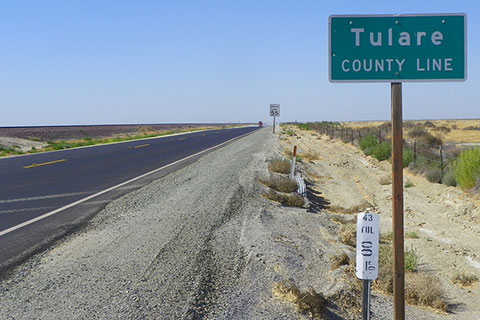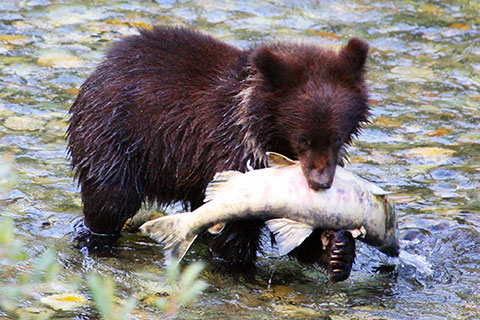Feature Archives
Sun Jan 22 2017 (Updated 01/29/17)
Millions of Women Take a Stand Against Trump the Day After Inauguration
On January 21, one day after Trump was inaugurated as the 45th President of the United States, women and allies in cities across the U.S. and countries throughout the world marched in protest in record numbers. In Washington, D.C., where the original Women's March was called, around 500,000 attended, far more than had come for the Trump inauguration itself. In Los Angeles, some estimates set the number present at nearly 750,000. Some of the largest marches in Northern California were in Oakland, San José, San Francisco, Sacramento, and Santa Cruz.
Tue Dec 20 2016 (Updated 12/21/16)
Tulare County Has Most Agricultural Pesticide Illnesses in California
The California Department of Pesticide Regulation (DPR) released a report last week detailing the 2014 results of their Pesticide Illness Surveillance Program. The report, documenting all reported pesticide-related illnesses from all California counties, shows 20.1% of agricultural pesticide-related illnesses occurred in Tulare County, making it the county with the most agricultural pesticide illnesses in the state. Santa Cruz County came in second with 17.2%. Of the 53 counties with documented pesticide-related illnesses in 2014, Tulare County accounted for over 1 in every 5 cases of poisonings from agricultural pesticides.
Sun Dec 18 2016
Obama Signs Bill with Water Giveaway to California Big Ag
In a slap in the face to fishermen, Tribes, environmental justice advocates, conservationists and family farmers, President Obama on December 16 signed the Water Infrastructure Improvements for the Nation (WIIN) Act into law with an environmentally destructive rider sponsored by Senator Feinstein (D-CA) and Congressman McCarthy (R-CA). The controversial rider, requested by corporate agribusiness interests, allows San Joaquin Valley growers and Southern California water agencies to pump more water out of the Delta, driving numerous fish species closer and closer to extinction, according to Delta advocates.
Sun Dec 18 2016 (Updated 01/29/17)
Mobilization Against the Coronation of Trump
A large coalition, including CrimethInc. Workers’ Collective, is calling for a bold mobilization against the inauguration of Donald Trump. In addition to Washington D.C., protests will also be held in Oakland, San Francisco, San José, Palo Alto, Santa Cruz, Monterey, and communities throughout the so-called United States. A widely circulated call to action states, "On Friday, January 20, 2017, Donald Trump will be inaugurated as President of the United States. We call on all people of good conscience to join in disrupting the ceremonies."
The California Secretary of State’s Office announced that voters narrowly defeated Proposition 53, an initiative requiring voter approval of revenue bonds over $2 billion. Governor Jerry Brown is celebrating the victory because it would have required a vote on his controversial “legacy” projects, the Delta Tunnels and High Speed Rail. Dan Bacher writes: The results of the Proposition 53 vote are disappointing for those who care about salmon, the Delta and the public trust. However, there is no doubt that if an initiative solely requiring a public vote on the Delta Tunnels had been on the ballot, it would have been decisively approved.
Sat Dec 10 2016
Disastrous New City at Tejon Ranch Approved for Kern County
On December 6, the Kern County Board of Supervisors approved Tejon Ranch Company’s disastrous Grapevine project, despite the harm the project will do to wildlife and nearby communities. The 8,000-acre development will straddle the San Joaquin Valley and Tehachapi Mountains and create a new city of up to 12,000 dwelling units and up to 5.1 million square feet of commercial real estate. The project will destroy habitat for the endangered San Joaquin kit fox, blunt-nosed leopard lizard, and threatened San Joaquin antelope squirrel, along with up to 36 other rare and imperiled species.
Sat Dec 3 2016
The Unseen Power of Big Oil in California
The Western States Petroleum Association (WSPA) is not a household name in California and the West, but it should be. WSPA is the trade association for the oil industry and the largest and most powerful corporate lobbying organization in California. It represents a who's who of oil companies including Aera Energy, Chevron, California Resources Corporation (formerly Occidental Petroleum), ExxonMobil, Phillips 66, Shell, Valero and many others. Yet most people — even many environmental activists — have never heard of the organization and the enormous influence it wields over politicians and regulators in the western states.
Central Valley:
 12
12









